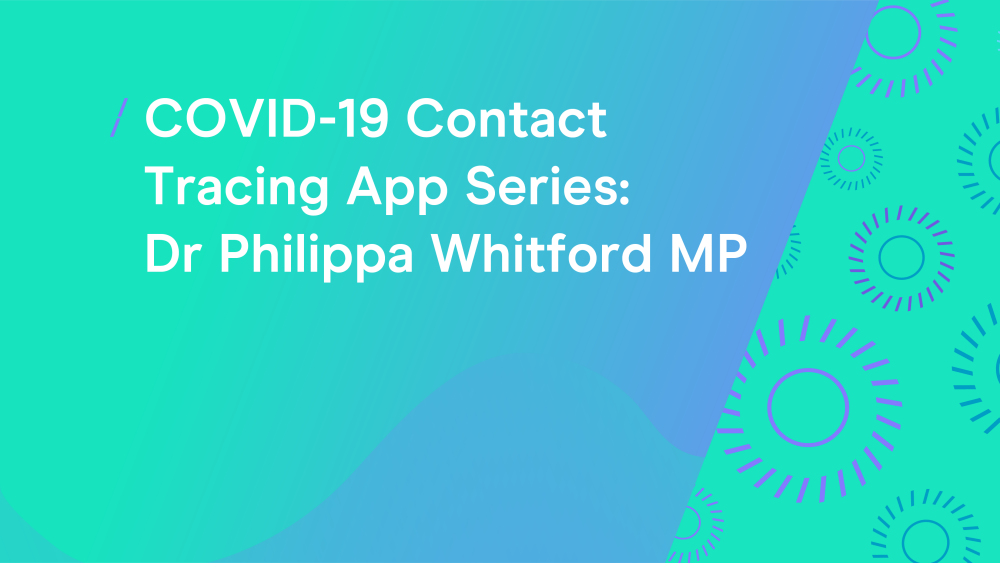COVID-19 Contact Tracing App Series: Dr Philippa Whitford MP
29 Jun 2020

Dr Philippa Whitford MP
SNP Spokesperson for Health and Europe, and breast cancer surgeon
"The UK Government will have to work with Google and Apple but should set aside any Brexit related ideology to utilise available open-source software and learn from those countries that already have a decentralised App up and running."
When challenged on 23rd June, about the failure of the UK’s ‘world-beating’ COVID App, the Prime Minister claimed there wasn’t a single country in the world with a functioning App. It seemed rather surprising that he was unaware that Germany, the largest country in Europe, had launched theirs on June 16th and that it had been downloaded by over 12 million people in its first week. While the ideal is to get 60% of the population to download such an App, Oxford scientists suggest even at just 15% digital contact tracing starts to make a contribution to disease control.
Like the UK, the German Government had originally proposed a centralised App, with all contacts being uploaded to a central server, but then changed direction to commit to the privacy-protecting decentralised Corona-Warn-App. While gathering all the data centrally might be attractive to epidemiologists, it was clear early on that the public had real concerns about their data being harvested by the Department of Health and Social Care, without any clear commitment as to how it would be utilised in the future or who it would belong to.
Concerns about the NHSX App were not exactly assuaged by the involvement of those who had previously been close to the ‘Vote Leave’ campaign or the inclusion of the large US Data company, Palantir. Despite public trust being critical to the success of any contact tracing App, the UK Government simply ignored the privacy concerns and ploughed on, spending almost £12 million pounds with precious little to show for it.
As producers of software for the vast majority of mobile phones, Apple and Google had agreed to collaborate on developing a decentralised App and made clear that they would not allow their Application Program Interface (API) to be used to host any Apps which did not protect privacy.
With a decentralised App, once a user enters that they have tested positive, it is the phone which anonymously messages other phones which have been within 2 metres of it for more than 15 minutes. The UK Government are now claiming they have been working with Google and Apple for quite some time but the tech companies say that’s news to them!
A Proximity App could certainly help to control viral spread as it is the only way to identify anonymous contacts, such as fellow train or bus passengers. It is, however, an adjunct rather than a replacement for traditional contact tracing, as carried out by Public Health teams with regards to other infectious diseases such as legionnaires disease or during e-Coli outbreaks. Unfortunately, Public Health services in England have faced upheaval and defunding over the last five years and money would have been better spent repairing the damage rather than outsourcing the manual contact tracing to SERCO.
As we will be living with COVID-19 for quite some time to come, the UK Government should pursue the development of a proximity App, but it doesn’t have to be some symbolic ‘world-beating’ Great British venture. They must work with the Scottish, Welsh and Northern Irish Governments to ensure any App can interface with the four National Health Services. Failure to do so, with the Deloitte run regional testing labs, has caused significant delays in getting test results to GPs or local Public Health teams.
The UK Government will have to work with Google and Apple but should set aside any Brexit related ideology to utilise available open-source software and learn from those countries that already have a decentralised App up and running.
Dr Philippa Whitford has been the MP for Central Ayrshire since 2015. She is Shadow Health Spokesperson for the SNP Group at Westminster and also the Shadow Europe Spokesperson. Prior to her election to Parliament, Philippa was a Breast Cancer Surgeon in the NHS for 30 years and is currently back working with her local health board to support their response to the Covid-19 pandemic.

Please login to comment.
Comments